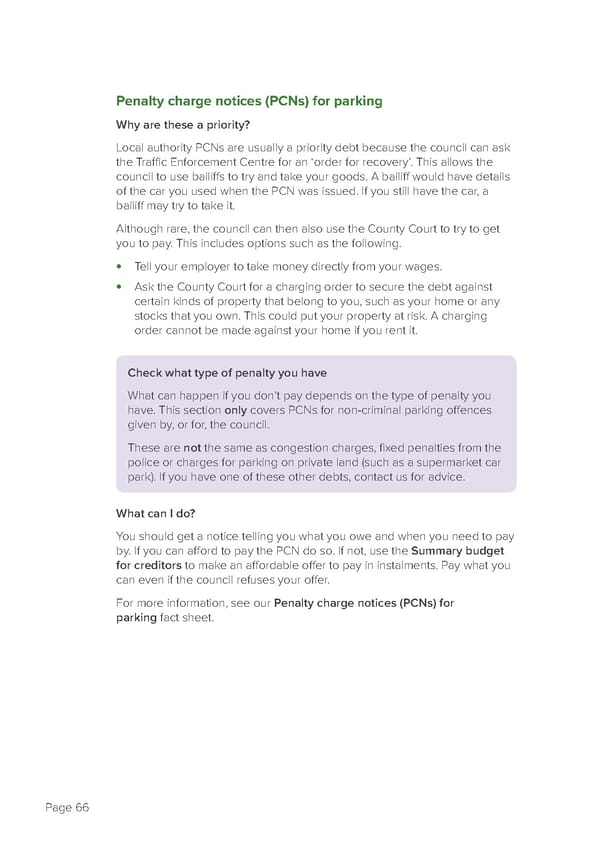Penalty charge notices (PCNs) for parking Why are these a priority? Local authority PCNs are usually a priority debt because the council can ask the Traffic Enforcement Centre for an ‘order for recovery’. This allows the council to use bailiffs to try and take your goods. A bailiff would have details of the car you used when the PCN was issued. If you still have the car, a bailiff may try to take it. Although rare, the council can then also use the County Court to try to get you to pay. This includes options such as the following. • Tell your employer to take money directly from your wages. • Ask the County Court for a charging order to secure the debt against certain kinds of property that belong to you, such as your home or any stocks that you own. This could put your property at risk. A charging order cannot be made against your home if you rent it. Check what type of penalty you have What can happen if you don’t pay depends on the type of penalty you have. This section only covers PCNs for non-criminal parking offences given by, or for, the council. These are not the same as congestion charges, fixed penalties from the police or charges for parking on private land (such as a supermarket car park). If you have one of these other debts, contact us for advice. What can I do? You should get a notice telling you what you owe and when you need to pay by. If you can afford to pay the PCN do so. If not, use the Summary budget for creditors to make an affordable offer to pay in instalments. Pay what you can even if the council refuses your offer. For more information, see our Penalty charge notices (PCNs) for parking fact sheet. Page 66
 how-to-deal-with-debt Page 67 Page 69
how-to-deal-with-debt Page 67 Page 69